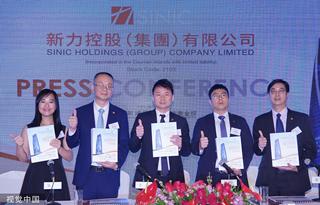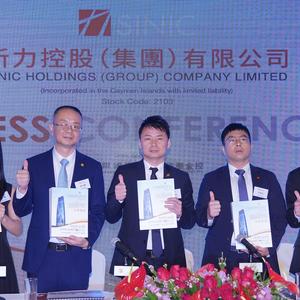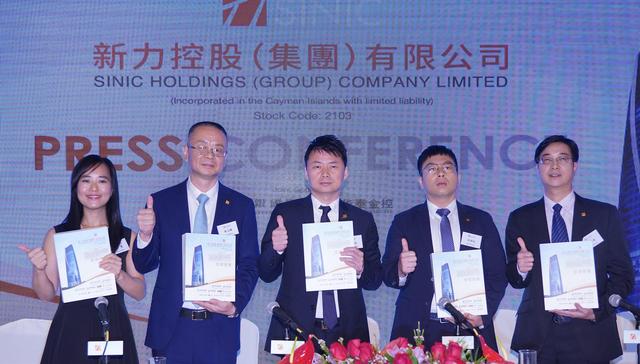By YANG Bingke
Property developer Sinic Holdings will be delisted from the Hong Kong Stock Exchange for failure to resume trading within a specified time limit, the bourse said Thursday night.
Sinic’s fall has come just as quickly and abruptly as its rise. It’s a painfully archetypical story of Chinese property developers over the past few years.
Founded in 2010, Sinic was confined in landlock Jiangxi Province until 2017, when the company moved its headquarters to Shanghai and started high-leveraged financing. Sinic’s sales in 2015 were only worth 4.5 billion yuan (US$650 million). In 2017, they stood at 42.8 billion yuan.
Sinic continued to borrow and expand gluttonously. Sales volume in 2018 doubled and by 2020, it reached 114 billion yuan. On November 15, 2019, Sinic made its debut on HKEX.

ZHANG Yuanlin, chairman of Sinic, was 43 that year. The photo of him ringing the gong foretold of a bright future for a bold young entrepreneur. What that picture did not show, and what the prospectus glossed over, was Sinic’s net debt-to-asset ratio in 2018 of 285 percent.
In September 2021, an offshore dollar bond was about to go overdue when agitated investors probed Zhang in a WeChat group. “We are working on it, thanks for asking, please keep supporting us,” was the reply. Eighteen months on, and that’s the kind of thing we’d expect a chatbot to say.
Then, Zhang flounced out of the WeChat group, leaving investors in shock. And that was the end of that. He never reemerged publicly again. On September 20, Sinic stock dropped 89 percent. Trading was suspended.
Sinic has since held a mini fire sale of assets, disposing of 70 percent of a Jiangxi subsidiary and 50 percent of an Anhui subsidiary - too little too late. Since then, Sinic has done nothing at all. During the 18-month hiatus, the company has offered no debt repayment solution nor any restructuring plan.
Sinic’s value now is only HK$1.75 billion (US$223 million, 1.53 billion yuan), less than one-tenth of its HK$14 billion high in 2019. According to its last financial report, released in June 2021, Sinic faced a total debt of 92 billion yuan. Now, with delisting, Sinic’s core finances will be hidden in darker corners.
It’s not just Sinic, listed property developers are dropping like flies over delayed financial reports: Aoyuan, Evergrande, Fantasia, Shimao, Sunac… The list goes on.
On March 10, Kaisa Group based in Guangdong Province, resumed trading on HKEX after being halted for 343 days. It was the first defaulted property developer to release a financial report.
It did nothing to help. Kaisa dropped 21.4 percent on the day to HK$0.66. By Thursday, Kaisa’s price was HK$0.29, a market value of only US$2 billion.





